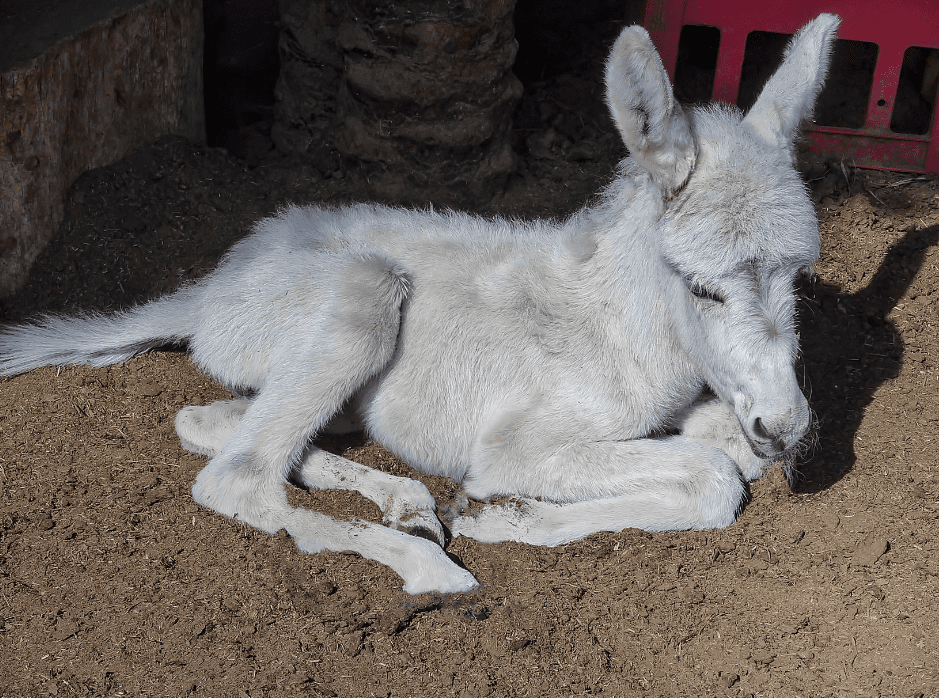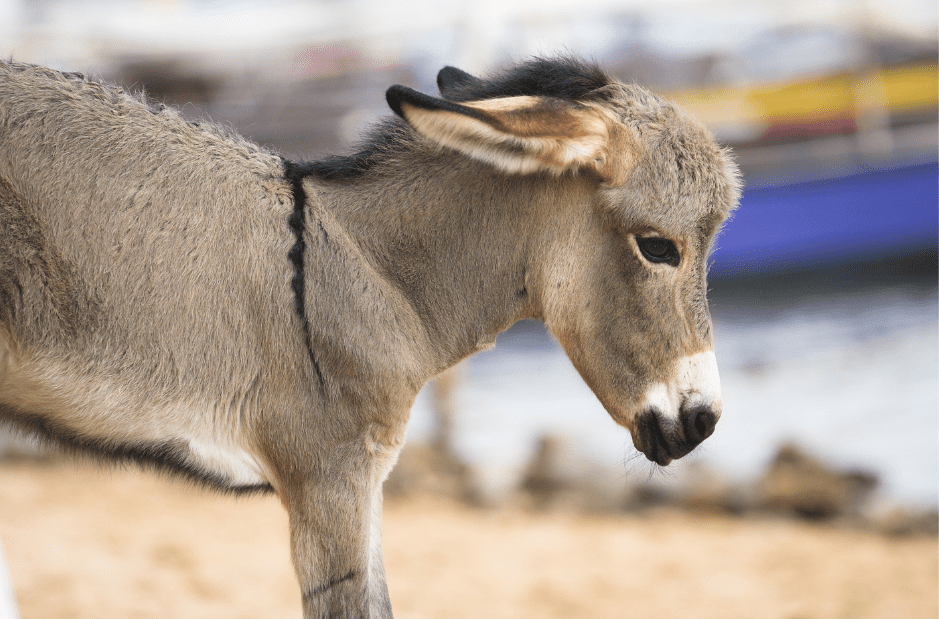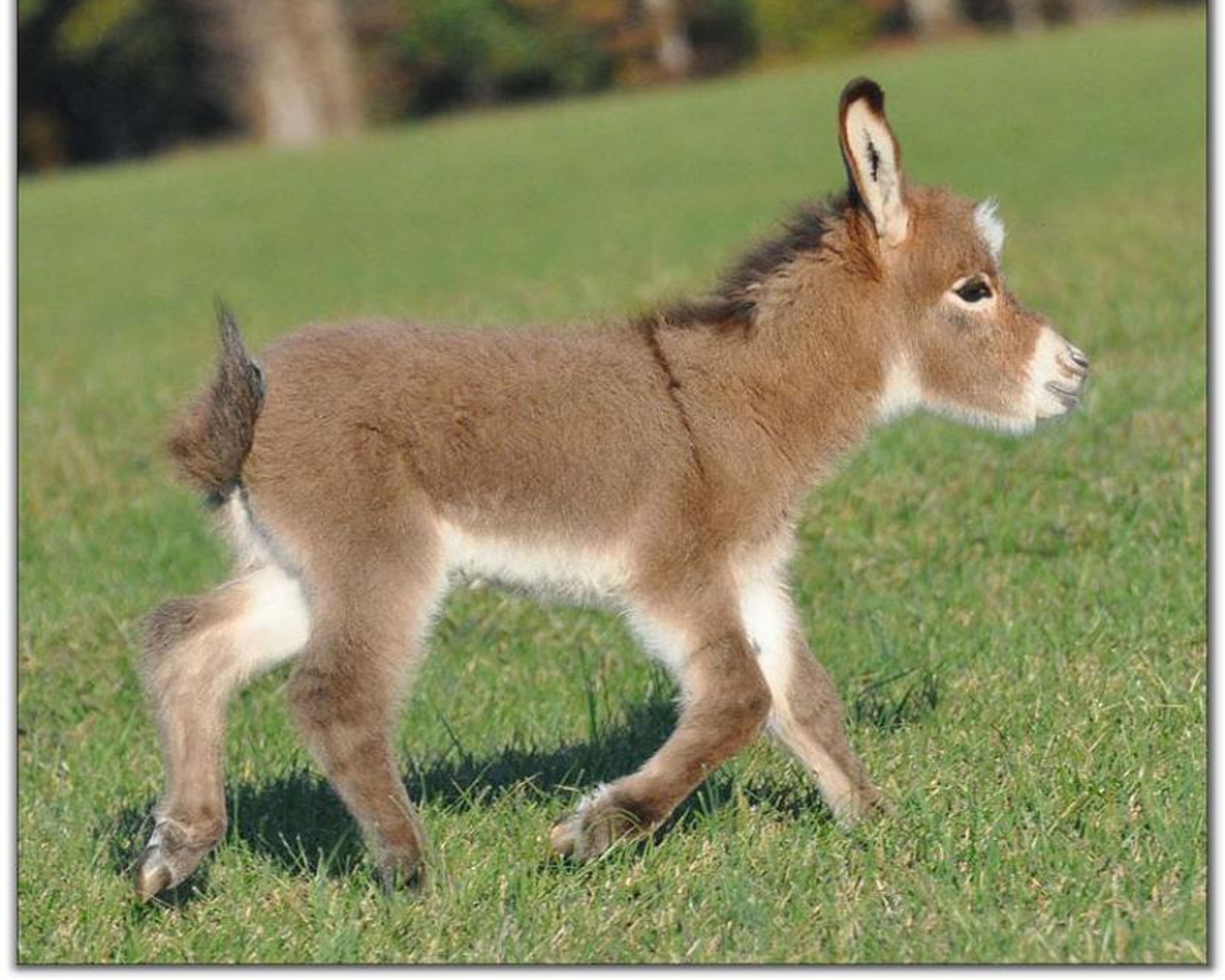Adorable Baby Donkeys: What Are They Called?
Ever wondered what the pitter-patter of tiny hooves sounds like? It's the enchanting sound of a foal, the name given to a baby donkey. These endearing creatures, often overlooked in the animal kingdom, possess a unique charm and play a significant role in both agricultural settings and as cherished companions.
From their fuzzy coats and playful antics to their surprising intelligence and unwavering loyalty, foals bring a unique joy to those fortunate enough to encounter them. But the term "foal" encompasses a world of subtle distinctions, a nuanced vocabulary reflecting the rich history and diverse roles donkeys have played alongside humans for millennia. Delving into this world reveals a fascinating tapestry of terminology, behavioral insights, and the remarkable journey these animals undertake from birth to maturity.
| Category | Details |
|---|---|
| Name | Foal (general), Filly (female < 1 year), Colt (male < 1 year) |
| Parents | Jack (male donkey), Jenny/Jennet (female donkey) |
| Gestation Period | Approximately 11-12 months |
| Lifespan | 25-30 years (sometimes up to 50) |
| Diet | Herbivore (hay, grass, grains) |
| Social Behavior | Highly social, prefer company of other donkeys |
| Uses | Agriculture, transportation, companionship |
Learn more about donkeys
Understanding the nuances of donkey terminology is key to appreciating these remarkable animals. While "foal" is the general term for a baby donkey, similar to horses, further distinctions exist. A young female foal is called a filly, while a young male is known as a colt. These terms are generally used until the donkey reaches one year old, after which they are referred to as yearlings.
The journey from foal to maturity is a fascinating process. Born after a gestation period of roughly 11 to 12 months, foals quickly find their feet, able to stand and walk shortly after birth. This rapid development allows them to keep pace with their mothers, crucial for survival in the wild. One remarkable aspect of a newborn foal's anatomy is the presence of the eponychium, often referred to as "fairy fingers" or "golden slippers." This soft capsule protects the mother during birth and wears away as the foal takes its first steps.
Donkeys, both wild and domesticated, exhibit a rich array of coat colors and patterns. The term "Africanis" refers to the African wild donkey, characterized by spotted markings, typically white and brown. Domestic donkeys, often called asses or burros (the Spanish term), also display a diverse palette, from the classic gray or brown to striking white or black coats.
Donkeys are highly social animals, thriving in the company of their own kind. This inherent need for companionship highlights the importance of keeping donkeys in pairs or groups to ensure their well-being. This social nature extends to their interactions with humans, forging strong bonds of loyalty and affection. Donkeys are intelligent and trainable, making them valuable partners in agricultural work, from plowing fields to carrying loads.
Beyond their practical contributions, donkeys offer invaluable companionship. Their gentle nature and calming presence make them ideal therapy animals, providing comfort and support to people of all ages. Whether working diligently on a farm or offering a comforting presence, donkeys demonstrate remarkable adaptability and an enduring connection to humanity.
The intricate web of donkey terminology reflects the deep-rooted relationship between these animals and human civilization. From the endearing image of a newborn foal taking its first steps to the steadfast companionship of a mature donkey, these animals offer a unique blend of practicality and emotional connection, reminding us of the enduring bond between humans and the animal kingdom.
While a mule is the result of a male donkey (jack) and a female horse (mare), and a hinny the offspring of a female donkey (jenny) and a male horse (stallion), a donkey itself is not a hybrid. Its lineage traces back to the African wild ass, a testament to the remarkable resilience and adaptability of this species.
The life of a donkey, from its earliest days as a foal to its mature years, is a testament to the remarkable bond between humans and animals. Their contributions to agriculture, their unwavering companionship, and their enduring presence in our cultural narratives underscore the unique place they hold in the world around us.



Detail Author:
- Name : Jacinto Walsh
- Email : phoebe.wiza@volkman.com
- Birthdate : 1997-04-19
- Address : 538 Olson Plains Suite 810 North Monica, DE 06418-4121
- Phone : 1-986-924-5038
- Company : King Inc
- Job : Public Relations Specialist
- Bio : Libero eos deserunt dolor magni et. Aliquid laudantium necessitatibus ut perspiciatis porro qui blanditiis totam. Iure et porro dignissimos aut. Consequatur sed saepe et non.